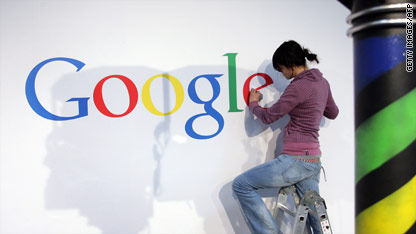
The first bit of bad news concerns sales of Google's Nexus One phone.
On Tuesday, the market analytics firm Flurry released a report saying initial sales of Google's Nexus One phone have been slim compared to the Droid and the iPhone. The firm compared sales of those those phones over the first 74 days they were on the market. In a blog post, Flurry says it chose that time period because that's how long it took the original iPhone to sell 1 million handsets when it was released in 2007.
By comparison, only 135,000 Nexus One phones were sold in that phone's first 74 days. More from Flurry's post:
As Google and Apple continue to battle for the mobile marketplace, Google Nexus One may go down as a grand, failed experiment or one that ultimately helped Google learn something that will prove important in years to come.Google responded to that news by playing up the Android Market, the online store where people with Android phones - like the Nexus One and Droid - buy applications, according to Engadget.
Google issued a statement to CNN, saying:
We’re pleased with our sales volumes and with how well the Nexus One has been received by our customers. The Nexus One is one of a fast growing number of Android handsets which have been brought to market through the open Android ecosystem. Our partners are shipping more than 60,000 Android handsets each day compared with 30,000 just three months ago.Not everyone says this news is so bad, though. Concern about the Nexus One's slow start is "more than a little ridiculous," writes Derek Thompson at The Atlantic:
Google is still a software company dabbling in hardware. And its mobile smart phone software is very, very good.The other potentially troublesome story concerns Google's search traffic.
Microsoft's Bing search engine appears to be making slight inroads on Google, which still dominates that territory. A Nielsen report, issued Monday, found Microsoft searches in February made up 12.5 percent of the search market, compared to 10.9 percent in January. Meanwhile, Google still accounts for 65.2 percent of all U.S. searches.
The Wall Street Journal's D: All Things Digital blog notes that the shift in the search market is "slow going":
... Bing is clearly whittling away at both Google and Yahoo’s search market share. Of course, the flip side is that with Yahoo in decline, the search side of the Microsoft-Yahoo partnership isn’t showing all that much growth.What do you think? Is Google, clearly one of the world's dominant tech companies, in any trouble here?
Was its jump into the mobile phone hardware market misguided, or do you think Nexus One sales may still take off? We welcome your thoughts in the comments section below.
source : http://scitech.blogs.cnn.com/2010/03/19/a-bad-week-for-google/